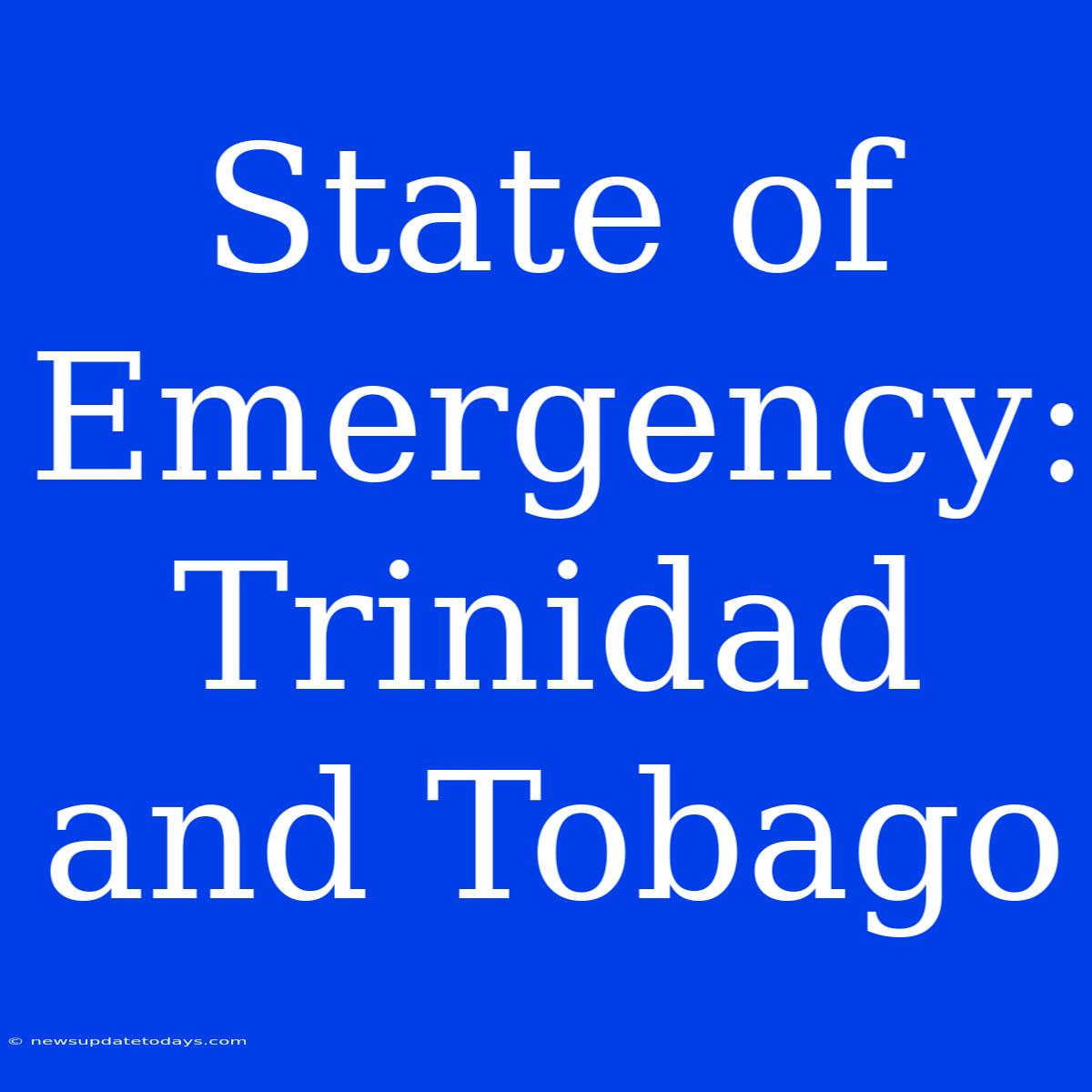State of Emergency in Trinidad and Tobago: Understanding the Implications
Trinidad and Tobago has a history of declaring states of emergency, often in response to surges in crime and gang violence. These periods significantly impact the lives of citizens, altering fundamental rights and freedoms. This article explores the intricacies of these states of emergency, examining their causes, effects, and the ongoing debate surrounding their effectiveness.
What Triggers a State of Emergency in Trinidad and Tobago?
The primary trigger for a state of emergency is a significant escalation in crime, particularly violent crime and gang-related activity. When the government deems that regular law enforcement measures are insufficient to control the situation, a state of emergency is often declared. This declaration allows for the implementation of extraordinary measures, temporarily overriding certain constitutional rights. Past declarations have been justified by rising murder rates, escalating gang warfare, and perceived threats to national security.
Impacts of a State of Emergency: Rights and Restrictions
The declaration of a state of emergency in Trinidad and Tobago inevitably leads to restrictions on fundamental rights. These restrictions may include:
- Curfews: Limiting the movement of citizens during specific hours.
- Increased Police Powers: Granting law enforcement broader powers of arrest, detention, and search without warrants.
- Limitations on Public Gatherings: Restricting protests, demonstrations, and other public assemblies.
- Suspension of Habeas Corpus: Meaning individuals can be detained without being immediately brought before a court.
These measures, while intended to curb crime, raise serious concerns about human rights violations and the potential for abuse of power. The delicate balance between national security and individual liberties becomes a central point of contention during such periods.
Debates and Criticisms: Effectiveness and Human Rights
The effectiveness of states of emergency in reducing crime in Trinidad and Tobago remains a subject of intense debate. Critics argue that such measures are often a blunt instrument, failing to address the root causes of crime, such as poverty, inequality, and lack of opportunity. Furthermore, the restrictions on fundamental rights raise significant human rights concerns, with accusations of police brutality, arbitrary arrests, and extrajudicial killings sometimes surfacing.
Conversely, proponents argue that states of emergency provide a necessary tool for restoring order and curbing escalating violence when conventional methods fail. They highlight instances where such measures have temporarily led to a decrease in crime rates, though often this decrease is short-lived.
Long-Term Solutions Beyond Emergency Measures
Addressing the underlying social and economic factors that contribute to crime is critical. This necessitates a comprehensive approach that includes:
- Investing in Social Programs: Addressing poverty and inequality through education, job creation, and social welfare initiatives.
- Strengthening Law Enforcement: Improving police training, technology, and community engagement.
- Addressing Gang Violence: Developing targeted strategies to dismantle criminal networks and address the root causes of gang activity.
- Promoting Transparency and Accountability: Ensuring that all actions taken during a state of emergency are subject to scrutiny and accountability.
Ultimately, sustainable solutions to crime in Trinidad and Tobago require a multifaceted approach that goes beyond the temporary measures of a state of emergency. A long-term strategy that addresses the root causes of crime, while respecting human rights, is crucial for achieving lasting peace and security. The ongoing debate surrounding states of emergency underscores the complexity of this challenge.

